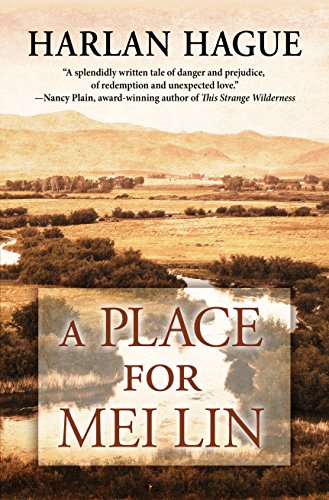A Place for Mei Lin
Caleb Willis is a loner. A Virginian, he moved to Idaho after losing his family to illness. He takes up gold dredging in the Stanley Basin in the early 1900s. Although he shuns companionship, he still does his drinking in public at the Rat Trap, a saloon and whorehouse in Boise. There he rescues Mei Lin, a Chinese prostitute, from some rough customers. His protective instinct coming to the fore, he takes her home, and although they live platonically for a time, they end up falling in love.
Hague intersperses the love story with Caleb’s attempts at gold dredging, a competitive business in Idaho. A ruthless adversary threatens their livelihood and Mei Lin’s rights are endangered. The author captures the early 20th-century Western attitude: risk-taking and lawlessness, discrimination, and yet something of a brave new world. Caleb and Mei Lin take refuge in Seattle, where they see other interracial couples and Mei Lin isn’t the only Asian.
Caleb and Mei Lin are interesting protagonists, who are more equals than the circumstances indicate. Mei Lin’s dialogue skirts close to Pidgin English, a challenge with any novel with a non-native English speaker, but this approach is one I hope authors abandon. It’s a disturbing stereotype that distracts from an otherwise strong narrative.










